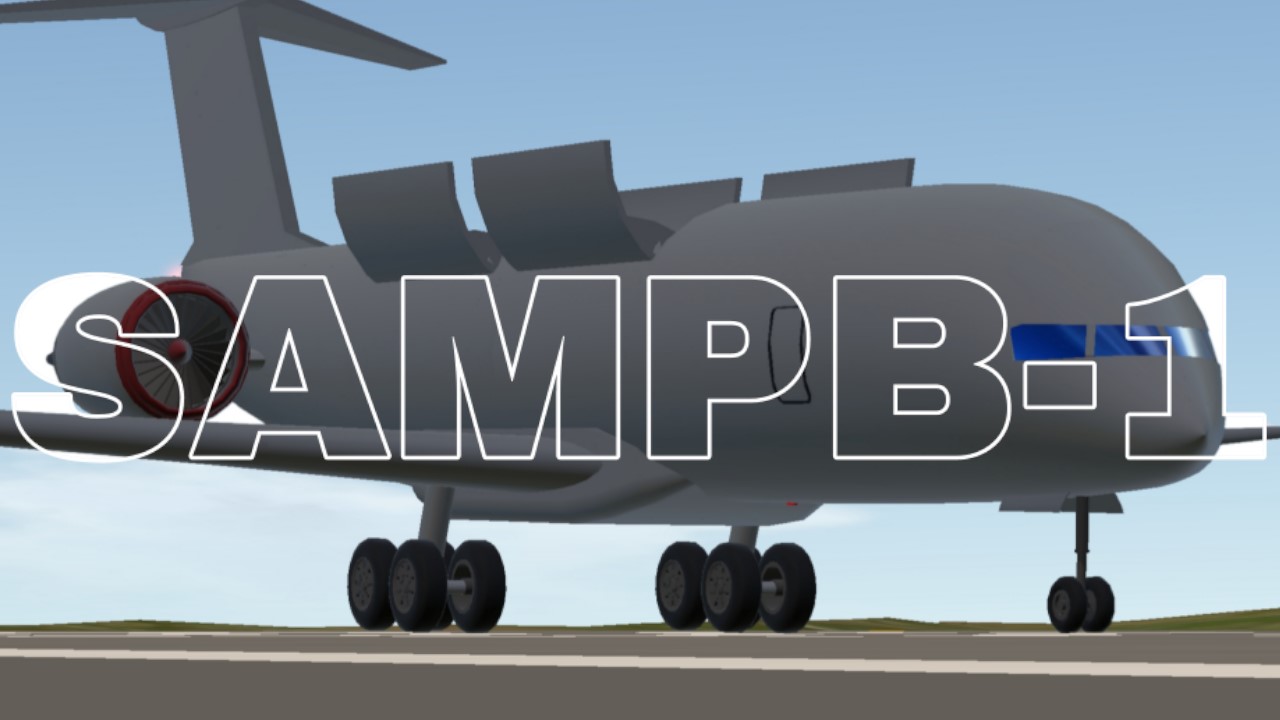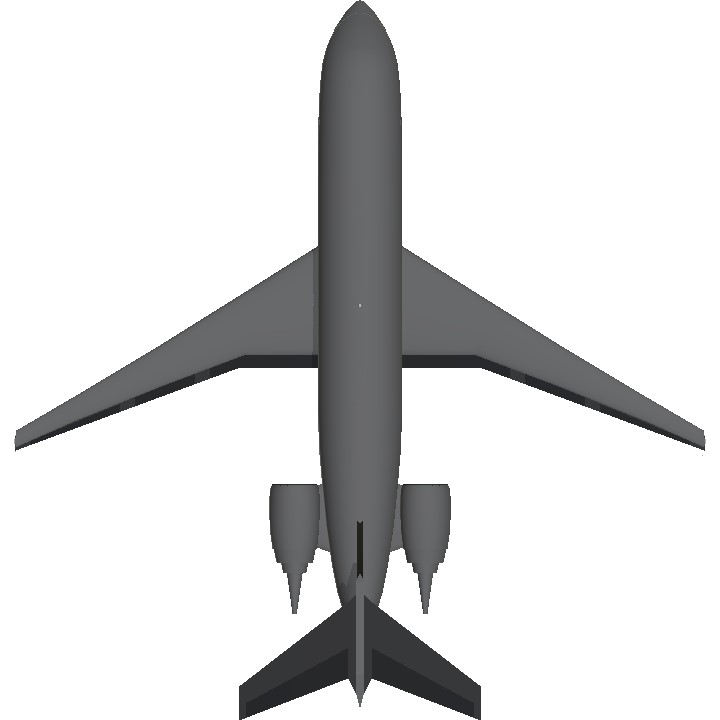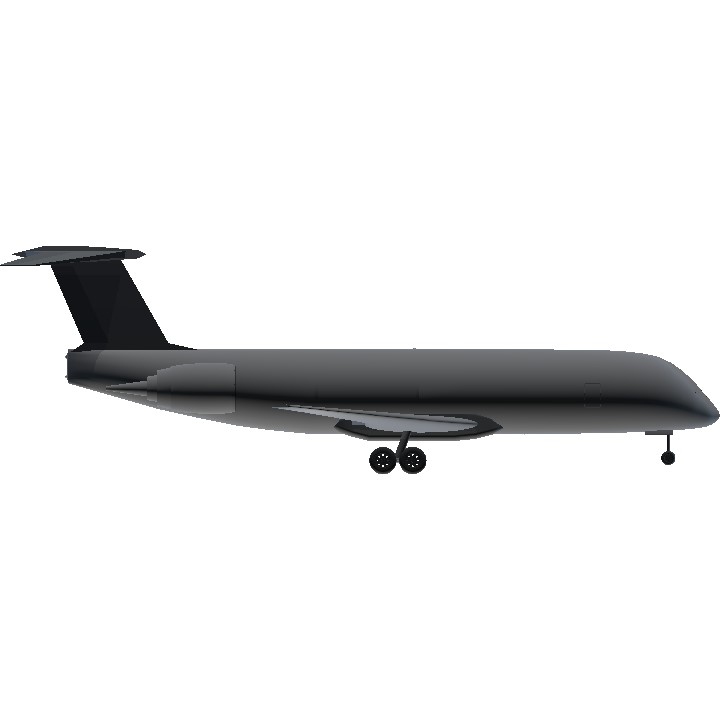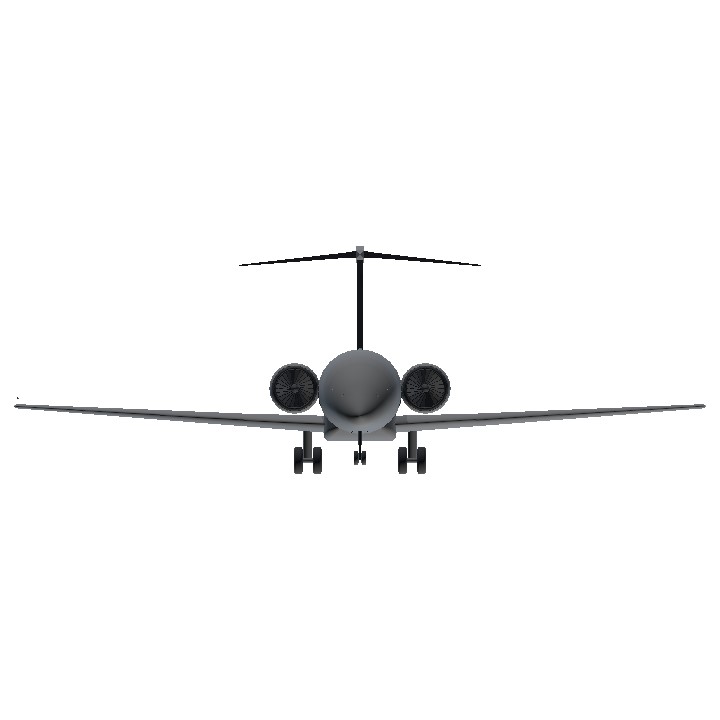Volotok SAMPB-1 Kilo (1985)
Design and Concept
The SAMPB-1 Kilo (Surface to Air Missile Portable Base) was an ambitious project by Volotok Aeronautics, designed in 1985 by Frostian engineer Dmitry Kozolowsky Petrov. It was a twin-engine aircraft resembling a light airliner, conceived to carry and deploy a mobile anti-aircraft missile battery. A large central dorsal fairing housed two sections, capable of holding 60 and 52 ARTAR missiles, totaling 112 missiles per mission. The fairing opened via a dual-hatch system on top, allowing the missiles to be deployed statically at the designated location.
ARTAR Missiles
The ARTAR missiles were active radar homing surface-to-air weapons, designed for medium to long-range interception of maneuvering aircraft. Each missile included a compact solid-fuel motor and radar seeker. The SAMPB-1 featured an autolaunch mode, where pressing and holding the launch button would sequentially fire all missiles automatically until the button was released.
Testing Phase
Between 1985 and 1986, the SAMPB-1 underwent multiple tests:
Ground structural tests: verified hatch mechanisms and launcher integrity; airflow-induced vibrations were observed at higher wind speeds.
Electronic integration: simulations of missile sequencing and autolaunch functionality revealed potential electrical shorts during emergency operations.
Taxi and takeoff trials: aircraft carried simulated missile loads; altered center of gravity reduced safety margins during takeoff.
Flight tests: two evaluation flights tested dorsal hatch deployment at low and medium altitude. Strong crosswinds caused debris detachment, slightly damaging the tail surfaces.
Static missile deployment: dummy missile launches validated the autolaunch system but showed risks of unintentional continuous firing.
During one test, the combination of weight and altered aerodynamics created a critical landing scenario; with partial hydraulic failure, recovery was marginal if the fairing had been opened.
Operational Limitations
Despite its innovative design, the SAMPB-1 faced major practical challenges:
1. Reliance on mobile radar support: required a separate ground radar platform for targeting.
2. Airfield requirements: needed long, prepared runways and a cargo aircraft to transport the system.
3. Safety risks: opening the fairing in adverse weather and autolaunch vulnerabilities posed operational hazards.
4. High complexity and cost: maintenance, crew training, and integration costs outweighed tactical benefits.
Cancellation and Legacy
By 1987, after extensive testing, the SAMPB-1 Kilo program was canceled. While it never entered service, the project contributed to studies on: fairing protection for sensitive payloads, hatch mechanisms for large airborne systems, and safety procedures for automated launch sequences. Some concepts influenced future research on drone-launched weapons and high-density airborne platforms.
Technical Summary
Type: Twin-engine airliner-style aircraft adapted as a missile platform
Year: 1985
Designer: Dmitry Kozolowsky Petrov (Frostia);
Armament: 112 ARTAR missiles (active radar homing) – 60 + 52 in two sections;
Launch Mode: Static deployment via dorsal hatch; autolaunch mode for sequential firing;
Status: Canceled after testing due to low operational viability.
Later Said by Dmitry Himself: "If we were seeking just Air defense, we just need to keep manufacturing capable fighters."
Controls
AG-2 Hatch Opening
Specifications
Spotlights
- ChihiroFujisaki one month ago
General Characteristics
- Created On Android
- Wingspan 134.1ft (40.9m)
- Length 139.5ft (42.5m)
- Height 44.3ft (13.5m)
- Empty Weight 103,072lbs (46,753kg)
- Loaded Weight 152,521lbs (69,182kg)
Performance
- Power/Weight Ratio 1.768
- Wing Loading 71.7lbs/ft2 (350.2kg/m2)
- Wing Area 2,126.2ft2 (197.5m2)
- Drag Points 53879
Parts
- Number of Parts 386
- Control Surfaces 11
- Performance Cost 2,204





@VDBVitto191 lmao, ima have to do some magic i guess
@VDBVitto191 Because then it's just explodes
@Liquidfox01 Did you use it while flying?lol
Finally, the REAL Upmarine
This is awesome but just detonates when firing missiles, lol
Meu Deus...
Cool!